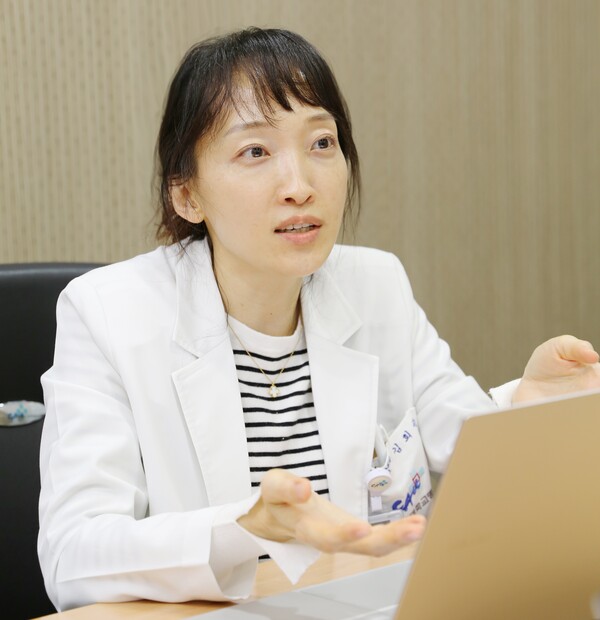Cancer has taken off its label of “incurable” thanks to technological development but remains a serious disease that is hard to treat. As a result, patients and their families are particularly thirsty for information about whether they get the treatment they need on time and what kind of care they should take after treatment.
Against this backdrop, Chung-Ang University Hospital (CAUH) is drawing attention by opening the Digital Cancer Agent Monitoring Center (D-CAM Center) for cancer patients and their families.
The D-CAM Center provides real-time personalized healthcare integrated services by stage and period of treatment by cancer types, such as diagnosis and pre-operative, chemotherapy, radiation therapy, psychotherapy, and post-treatment care of cancer patients.
Recently, attempts to graft “digital” to cancer treatment and management have become common. However, CAUH has added customized two-way communication with patients (and their families). Although it added only three words -- customized two-way communication, the meaning is quite different. It’s because providing answers to questions when patients and their families need them means it relieves them of anxiety.

“The most distinctive feature of D-CAM Center is its customized, two-way communication," said Professor Kim Hee-jun of the Department of Hemato-oncology. “In the case of breast cancer, for instance, each patient is different not only in personal condition but also in the disease’s phase, such as metastatic HER+ or triple-negative. Therefore, we operate this center by providing individually curious and necessary information according to the situation instead of unilaterally offering them stereotyped information."
To this end, the center has developed and operated a personalized healthcare service protocol for each cancer period. ‘This is implemented through a digitally customized smart app developed by the hospital called “CAMA (CAncer MAnager).” If patients and their family members download the CAMA app on their smartphones, like many other applications, they can use the hospital's digital cancer management service.
What sets this service apart from other hospitals' cancer management services is that personnel dedicated to one-on-one service have been deployed. If the patient leaves any questions on the CAMA app, the dedicated manager will reply and call or have a face-to-face consultation if necessary.
“There is much cancer information on the internet, but many patients wonder if it is accurate. Therefore, the center places the foremost priority on accurate information delivery. A typical example is specialists’ provision of image information by breast cancer category,” Professor Kim said. “Communication between dedicated managers, medical staff, and patients helps patients minimize anxiety during treatment and concentrate on treatment and care.”
The CAMA app also analyzes the information of the registered patient and provides information that patients should know according to their disease stage.
It provides breast cancer patients with information, such as what treatments they should take when they get pregnant or when side effects, like hair loss or numbness in hands and feet, will occur, according to patients’ disease stages,” she said.
The CAMA app currently offers services focused on breast cancer patients, but the center plans to expand its service range to other types of cancer gradually.
According to Professor Kim, the center conducted an evaluation test of the app on cancer patients who have used it after opening the CAMA app in November and got an average of four out of five points. In addition, patients reportedly said it was not difficult to use the app and were effectively receiving one-on-one care service based on their needs.
"Among young breast cancer patients, some ask personal questions that cannot be asked in front of their families, such as pregnancy or family dispute, or questions difficult to talk face-to-face (with the medical staff) through the app," she said. “To communicate and provide information with these patients, the center subdivides treatment tracks before and after menopause, before and after surgery, and strives for dedicated manager education.”
Now, cancer treatment should evolve into a form that saves lives and takes care of life after treatments. But there are no two-way communication programs in the country, Kim added.
“We're going to create a system that can treat these cancer patients and take care of them. Currently, it is limited to breast cancer patients, but we will make efforts to expand it to various other cancers, including rare cancers," she added.

